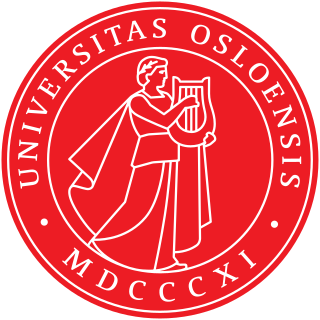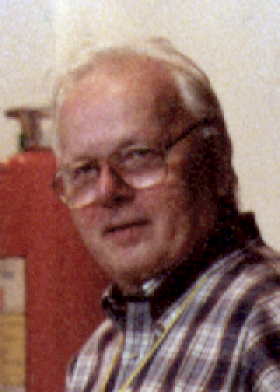
The University of Bergen is a public research university located in Bergen, Norway. As of 2021, the university has over 4,000 employees and 19,000 students. It was established by an act of parliament in 1946 based on several older scientific institutions dating back to 1825, and is Norway's second-oldest university. It is considered one of Norway's four "established universities" and has faculties and programmes in all the fields of a classical university including fields that are traditionally reserved by law for established universities, including medicine and law. It is also one of Norway's leading universities in many natural sciences, including marine research and climate research. It is consistently ranked in the top one percentage among the world's universities, usually among the best 200 universities and among the best 10 or 50 universities worldwide in some fields such as earth and marine sciences. It is part of the Coimbra Group and of the U5 group of Norway's oldest and highest ranked universities.

The University of Oslo is a public research university located in Oslo, Norway. It is the oldest university in Norway. Originally named the Royal Frederick University, the university was established in 1811 as the de facto Norwegian continuation of Denmark-Norway's common university, the University of Copenhagen, with which it shares many traditions. It was named for King Frederick VI of Denmark and Norway, and received its current name in 1939. The university was commonly nicknamed "The Royal Frederick's" before the name change, and informally also referred to simply as Universitetet.

Norwegian Computing Center is a private, independent, non-profit research foundation. NR carries out contract research and development in the areas of computing and quantitative methods for a broad range of industrial, commercial and public service organizations in Norway and internationally. NR is one of Europe's largest research environments in applied statistics and its projects cover a large variety of applied and academic problems. NR's offices are located near the university campus Blindern in Oslo, and adjacent to Oslo Science Park (Forskningsparken).

Kristen Nygaard was a Norwegian computer scientist, programming language pioneer, and politician. Internationally, Nygaard is acknowledged as the co-inventor of object-oriented programming and the programming language Simula with Ole-Johan Dahl in the 1960s. Nygaard and Dahl received the 2001 A. M. Turing Award for their contribution to computer science.
Stein Rokkan was a Norwegian political scientist and sociologist. He was the first professor of sociology at the University of Bergen and a principal founder of the discipline of comparative politics. He founded the multidisciplinary Department of Sociology at the University of Bergen, which encompassed sociology, economics and political science and which had a key role in the postwar development of the social sciences in Norway.
Everett Cherrington Hughes was an American sociologist best known for his work on ethnic relations, work and occupations and the methodology of fieldwork. His take on sociology was, however, very broad. In recent scholarship, his theoretical contribution to sociology has been discussed as interpretive institutional ecology, forming a theoretical frame of reference that combines elements of the classical ecological theory of class, and elements of a proto-dependency analysis of Quebec's industrialization in the 1930s.
Johan Vilhelm Aubert was an influential Norwegian sociologist. He was a professor at the Faculty of Law, University of Oslo from 1963 to 1971 and at the Department of Sociology from 1971 to 1988. He co-founded the Norwegian Institute for Social Research already in 1950, and has been labelled the "father of Norwegian sociology". In his early life he was a member of the anti-Nazi resistance group XU, and while later involved on the radical wing of the Labour Party, he edited the newspaper Orientering.
Geir Lennart Høgsnes was a Norwegian sociologist. He did research on labor and wages, and spent the better part of his academic career at the Norwegian Institute for Social Research and the University of Oslo. He was a professor until 2009, when he was found dead in his home under uncertain circumstances.
Fredrik Engelstad is a Norwegian sociologist. He has written several books.
Tove Stang Dahl was a Norwegian legal scholar, criminologist, Professor of Law at the Faculty of Law, University of Oslo from 1988 until her death, and a pioneer of "feminist jurisprudence".

Grete Brochmann is a Norwegian sociologist and Professor at the University of Oslo. Her main research field is international migration. She has been a visiting scholar the University of Louvain (UCLouvain) and the University of California, Berkeley. She chaired the Norwegian Welfare and Migration Committee, the so-called Brochmann Committee.
Øystein Gullvåg Holter is a Norwegian sociologist and expert on men's studies. Son of Harriet Holter. He is Professor of men's studies at the University of Oslo, the first to be appointed to such a chair in Norway. He worked as a researcher at the Work Research Institute from 1980 to 2006, and at the Nordic Gender Institute from 2006 to 2008. His fields of research are work and family, gender equality and historical sociology. He was a member of the Equality Commission, established by a Royal Decree of 12 February 2010 in order to report on Norway’s equality policies.
Mette Andersson is a Norwegian sociologist. She is Professor of Sociology at the University of Bergen. Her fields of expertise are cultural and political sociology, especially migration, ethnicity and racism, identity and identity politics, social movements, sociology of sport, transnationality and religion.
Johannes Hjellbrekke is a Norwegian sociologist. He is Professor of Sociology at the University of Bergen and was editor-in-chief of Sosiologisk tidsskrift from 2003 to 2005. He was appointed as Associate Professor of Sociology at the University of Bergen in 2005, and became full Professor in 2010. He has been a visiting scholar/professor at the University of York, EHESS/Paris, UC Berkeley and New York University. He is noted for his research on social class, elites, power, and social mobility.
Sverre Holm was a Norwegian librarian, novelist, resistance member and sociologist. He was born in Harstad.
Stein Leif Bråten is a Norwegian sociologist and social psychologist specializing in communication. He used the Simula programming language in one of the earliest uses of computers in modelling interpersonal communication. In 1989 he was awarded a PhD. in psychology at the University of Bergen for work on preverbal communication with infants connected to his theory of the virtual other. He is recognized for his work on mother-child interaction and in 1998 edited Intersubjective Communication and Emotion in Early Ontogeny, published by Cambridge University Press (ISBN 0-521-62257-3). He is professor emeritus at the University of Oslo and is a member of the Norwegian Academy of Science. His 1973 article "Model Monopoly and Communication: Systems Theoretical Notes on Democratization" was selected for the Norwegian Sociology Canon by Sosiologinytt in 2011. A main theme in this article is that the so-called 'model strength' of the participants in a conversation affects the outcome of prolonged conversation as regards influence and power.
The Department of Psychology at the University of Oslo is the oldest and largest research institute and educational institution in psychology in Norway. It is Norway's main research institution in clinical psychology, cognitive psychology, developmental psychology, personality psychology, and social and cultural psychology, and one of the main research environments in neuroscience. The institute is located in the Harald Schjelderup Building adjacent to Oslo University Hospital, Rikshospitalet in the Gaustad area of Oslo; the building is shared with parts of the Faculty of Medicine, while Oslo University Hospital occupies surrounding buildings. The institute's alumni include two Nobel laureates, Edvard Moser and May-Britt Moser.
Anne Hellum is a Norwegian jurist. She is Professor of Public Law at the Department of Public and International Law at the University of Oslo Faculty of Law. Her main areas of expertise are anti-discrimination and equality law, women's law, human rights and international development, sociology of law and African legal issues. Since 2000, she is also director of the Institute of Women's Law, which is part of the Department of Public and International Law.
Beret Bråten is a Norwegian sociologist, political scientist and Labour Party politician. She was deputy leader of the Labour Party's youth wing, the Workers' Youth League (1992–1994), and was a political adviser in the Prime Minister's Office and a close confidant of prime minister Thorbjørn Jagland during his tenure from 1996 to 1997. From 2020 she is vice president of the Norwegian Association for Women's Rights. Bråten holds a PhD in political science and is a senior researcher at the Fafo Foundation and an associate professor at the University of Oslo.
Marianne Nordli Hansen is a Norwegian sociologist. She is a professor of sociology at the University of Oslo.




